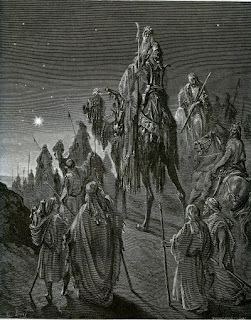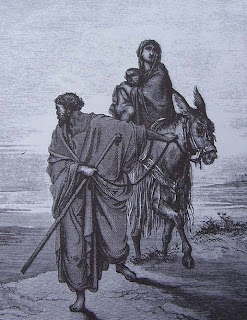
After the battering media and judiciary who have ruined the political authority of the army during the years 2008 and 2009, the year 2010, adding to the waves of arrests and the trials of military, constitutional reform, affecting mainly the judicial hierarchy, has stagger the political system of controlled democracy, established by the 1982 Constitution.
In 2010, the demilitarization process has continued, taking an even greater intensity. In this regard, this year has been marked in the month of January by the revelation of the plan "Balyoz" (cf. Our editions of 21 and 23 January 2010), a case that revealed a scenario envisioned by the Army to destabilize the AKP government since the aftermath of his election. Therefore, even more than the previous cases of conspiracy, it helped set bare the role of policeman that the army had arrogated to itself in the system. "Balyoz" is also a turning point by the magnitude of the number and level of responsibility of the generals who are involved. On 16 December, in fact, it is not within 196 senior military officers who began to appear in court calendar!
Yet beyond this new case, the major event in the political-military, has been at the beginning of August 2010, the completely new course in its shape and scope of the Council Supreme Military (Yüksek Asker Sura or YAS). Using the ongoing investigations against military officials, the government has successfully blocked for 5 days, the appointment of the Chief of Staff and the Commander of the Army. At this Council, marked by the permanent presence of the Prime Minister himself, the civil authority has actually dared to challenge the military power of appointment of its leaders that it was granted, and which is one bases of its power and its autonomy from the government (see our editions of 2, 6, 7 and August 10, 2010).
This intensification of the demilitarization system was accompanied by a severe blow to the judicial hierarchy, another bastion of the Kemalist state power that continues to resist the government (see our editions of March 24, April 23, 5, 7, 14 May 2010 ). To do this, that is to say mainly to promote a restructuring of the composition of the Constitutional Court and the Supreme Council of Judges and Prosecutors (equivalent to Turkey's Supreme Council of Magistracy in France), the government gave to the agenda last spring, the constitutional question, since evaded the draft constitution stalled civil in 2008. Thus it is able not only to reduce the influence on the system of high courts and the judicial hierarchy, but also to get a new electoral victory in the referendum in September, approved the constitutional reform ( see our editions of 11, 13, 15 and 16 September 2010).
After the local elections of March 2009 which had indicated some slowing in the AKP, the referendum of 12 September 2010, which saw the "Yes", advocated by the government, record a score over 58% has strengthened the leadership training of Recep Tayyip Erdogan on politics Turkish (see our editions of 13, 15 and 16 September 2010). By winning his sixth victory since 2002 in a vote by universal suffrage, the AKP has confirmed that its influence is very strong on the Turkish electorate and at the same time relativized the scope of the renewal of HPC, which should have the One of the highlights of this year 2010 (see our issue of November 11, 2010). Since the ouster of incredible Deniz Baykal and his replacement by Kemal Kılıçdaroğlu have not kept all their promises (see our editions of 10, 11, 23 and May 25, 2010). In the referendum of 12 September, the party is Kemalist failed to arise as an alternative social democratic credibility, and it became too as the defender of the system inherited from the 1982 Constitution. Its extraordinary congress in December 2010, it has certainly helped get rid of the party's old guard, including former Secretary General Önder Sav, but it will take more to compete with the AKP in the upcoming parliamentary elections to be held in June 2011, and whose agenda looks very full. Besides the draft Civil Constitution, including the party of Recep Tayyip Erdogan plans to do a theme of his campaign, the question Headscarf (in universities, in the public and perhaps even in schools), which was reactivated in the academic year 2010, could indeed be the heart of an electoral event, for which the main opposition party does not yet seem ready.
Apart from this perspective election of 2010 also confirms that the Kurdish question remains the fundamental problem that Turkey has to solve, if it truly wants to complete the democratization of its political system (see our January 30 edition of , June 22, 24 and 26 August and 29 October and 23 December 2010). The inconclusive result of the "democratic opening" launched by the government in 2009, the dissolution of the DTP a year ago, the occurrence of armed clashes and attacks many during the first half of 2010, did not extinguish any hope for a political solution. Better, in fact, against an economic downturn, it now seems to become increasingly unavoidable. Thus, although the constitutional revision of the September 12 has ignored the Kurdish issue has continued to invite the Turkish political debate. Alongside the parliamentary role played by the BDP, this new structure that is the DTK (Demokratik Toplum Kongresi - Congress for a Democratic Society), which relies mainly on civil society, has appeared increasingly, in the second half of 2010, as the key link of a strategy of Kurdish organizations, which is to outflank the government, pushing for a concrete recognition of the Kurdish political fact (see our issue of December 23, 2010). By truces that decreed unilaterally and pronouncements of its leader (very visited this year in his prison Imralı), the PKK is trying to find a place in this process to try to become one of the recognized players. While it is unlikely that this attempt to federalize done either formally dedicated short term, but the government will be more and more difficult to be the champion of recognizing the diversity of Turkey, if it continues to camp on traditional and centralist nationalist positions which are those of the Turkish state.
With regard exactly identities, 2010 has been replaced, as in previous years, events held as noticed for the first time in Istanbul, an event commemorating Armenian genocide (see our edition of April 28, 2010), the organization of religious ceremonies on the landmarks of Sümela and Aktamar (see our editions of August 16 and September 20, 2010), or the return of the Orphanage Büyükada the Greek Orthodox Patriarchate. But, in the same way as the Kurdish question, if these initiatives are not followed by concrete steps and continue to coexist with official behavior particularly nationalists, they may have only relative significance. In this regard, one can not fail to note also that the year 2010, has seen the seminar Orthodox Heybeli Ada remain closed, the Alevi question remain unanswered, the murder trial of Hrant Dink bogged down, or the government reacted very violently to the recognition of Armenian genocide by the Swedish Parliament. The year just ended will have confirmed that the spectacular initiatives in law and freedoms, as could also be the authorization of the demonstration on May 1 in Taksim Square (for the first time since 33, cf. our edition of May 2, 2010), do not exhaust the debate on the establishment of a genuine rule of law in Turkey.
JM


















